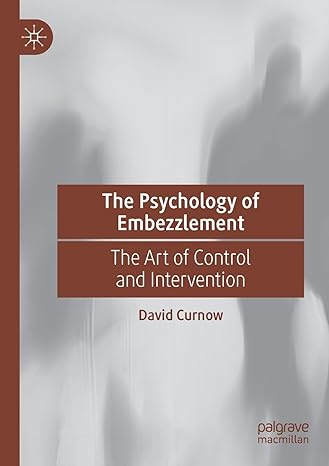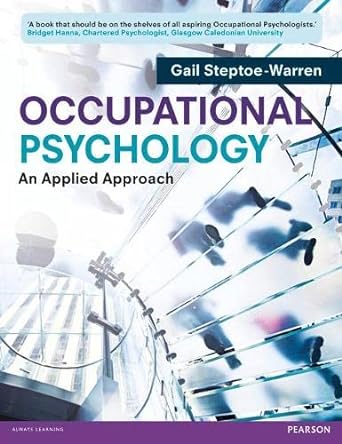Go back


The Psychology Of Embezzlement The Art Of Control And Intervention(1st Edition)
Authors:
David Curnow

Cover Type:Hardcover
Condition:Used
In Stock
Include with your book
Free shipping: April 13, 2024Popular items with books
Access to 3 Million+ solutions
Free ✝
Ask 10 Questions from expert
200,000+ Expert answers
✝ 7 days-trial
Total Price:
$0
List Price: $139.99
Savings: $139.99(100%)
Book details
ISBN: 3030744418, 978-3030744410
Book publisher: Palgrave Macmillan
Get your hands on the best-selling book The Psychology Of Embezzlement The Art Of Control And Intervention 1st Edition for free. Feed your curiosity and let your imagination soar with the best stories coming out to you without hefty price tags. Browse SolutionInn to discover a treasure trove of fiction and non-fiction books where every page leads the reader to an undiscovered world. Start your literary adventure right away and also enjoy free shipping of these complimentary books to your door.
The Psychology Of Embezzlement The Art Of Control And Intervention 1st Edition Summary: Using recent research and case studies, this book offers an evidence-based insight into the embezzler’s mindset as they commit crimes that are costing nations, organisations and individuals increasingly more each year. This mindset is described in detail as the embezzler develops their motivation to steal from their employer, finds a method of stealing, assesses the risks, executes the theft, and then determines whether to continue to steal. The organisational landscape of security capabilities, culture and financial circumstances provide the environment that this mindset operates within. The embezzler’s approach to the crime is broken down into four stages: Pre-Existing Vulnerabilities, Induction to First Theft, Ongoing Theft and Detection to Resolution. The author recommends strategies based on the embezzler’s mindset for organisations to enhance their ability to protect themselves from such inside threats that attack their reputation, productivity, morale and, in the worst cases, financial viability.
Customers also bought these books
Frequently Bought Together
Top Reviews for Books
Rodney Eaford
( 5 )
"Delivery was considerably fast, and the book I received was in a good condition."










